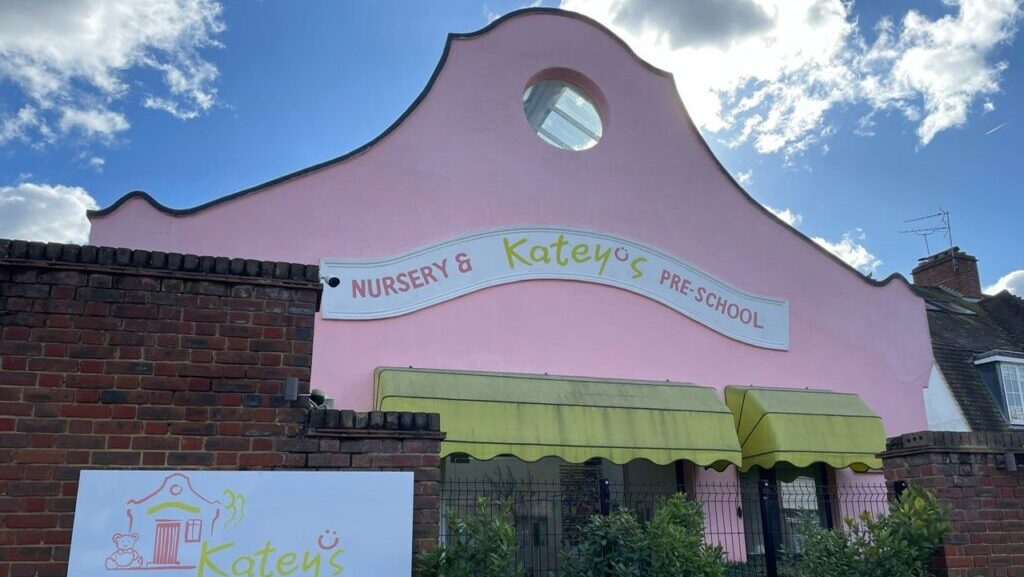The winners of the National NMT Nursery Awards reflect on what their achievement means to them
A strong start
Jenna Caldwell, director of operations at Redwoods Dowling Kerr, reveals the company’s latest childcare M&A statistics, offering insights into current market trends and buyer behaviour
Fresh data from our internal group data team, Altius Business Intelligence, highlights opportunities for growth in mergers and acquisitions, as the childcare market prepares for a dynamic year in 2025.
Drawing on insights from Ofsted, the Scottish and Welsh Care Inspectorates and Companies House, in addition to our proprietary data, the latest figures reveal a maturing ownership profile, a steady pace of consolidation and promise real improvements in operational standards.
Ageing ownership fuels M&A potential
The ageing demographic of childcare business owners continues to shape the market. By the end of the 2023-24 academic year, 55% were aged over 50, compared to 54% in 2022-23. Notably, over a quarter of business owners are now over 60 years of age, marking a trend towards retirement planning.
Barriers to entry for younger entrepreneurs remain high, with increased costs for construction, leases, regulatory compliance and labour. The decline in childcare business owners under 40 underscores the challenges new entrants face without substantial financial backing. This shifting demographic creates fertile ground for mergers and acquisitions. As seasoned business owners plan exits, the market is ripe for consolidation, particularly for operators with the expertise and resources to scale efficiently.

Consolidation in group sizes
The structure of the market is evolving, with single-setting operators experiencing a significant decline. By the end of 2024, just 36% of settings in England were single-site operations, down from 38% in the 2022-23 academic year. Meanwhile, groups managing between two and 14 settings increased their market presence during the same period, with 67% of the market now controlled by operators with fewer than four settings. This reflects a fragmented market with room for mid-sized operators to grow through acquisitions.
Corporate operators with more than 15 settings saw market share stabilise at just under 20%. This levelling-off suggests opportunities for mid-sized groups and private equity-backed operators to expand their group sizes.
During 2024, Redwoods Dowling Kerr facilitated a number of sales to group buyers. For example, Little Tots Nurseries was sold to Muddy Puddles Nurseries, a business with several existing sites and its own clothing brand.
In another deal, Angels by Day was sold to Kids Planet. The sale followed a number of acquisitions by Kids Planet handled by RDK’s childcare team, including Fledglings and The Wendy House Day Nursery earlier last year.

Larger settings take the lead
The trend toward larger settings is accelerating, with 19% of the market offering more than 80 places in the 2023-24 academic year, up from 17% in 2020-21. Smaller settings continue to shrink as a proportion, with those offering fewer than 20 places declining to just 3% in 2024.
This shift reflects broader operational efficiencies sought by operators, as larger settings often provide better economies of scale. Despite challenges such as rising costs of capital, this trend signals opportunities for investors focused on long-term returns in larger operations.
Strong standards and rebounding openings
The quality of childcare in England continues to increase. In the 2023-24 period, more than 97% of settings were rated Good or Outstanding, aligning with a reduction in Requires improvement or Inadequate ratings which fell to less than 3% of the market – a clear testament to the sector’s commitment to high standards.
After a challenging 2023, during which Ofsted published a net loss of 502 settings, the tide turned in 2024 with a net gain of 96 nurseries. However, data compiled by Altius BI suggests that 2022- 23 remained stable for private settings with little change in the net position, followed by a net increase in private nurseries and pre-schools of 50 in the 2023-24 academic year.
We believe that the loss reported by Ofsted in part reflects the non-private sector, where we estimate a net loss of around 250 settings during the 2023-24 academic year, and around 400 settings in 2022-23. While childcare settings have experienced a decline in the market in previous years, we believe that this is not reflective of private settings, which have been bolstered by rising fees and increased demand as more parents return to work amid the continuing cost of living crisis.
The childcare sector is entering 2025 with renewed confidence and optimism. The combination of ageing ownership, high operational standards and steady consolidation positions the market for significant M&A. For childcare business owners contemplating their next steps, 2025 offers a promising environment to achieve successful exits and contribute to the sector’s continued evolution.
With more than 81% of the market controlled by operators with fewer than 15 settings, there’s ample room for consolidation. 2025 has started with a bang, with RDK completing seven childcare sales in January, with a strong first-quarter pipeline
Latest Features
Stephanie Mensah, co-founder of Bibinee Dolls, explores the importance of diversity in early years education and asks if we are…
We find out how Chalk Nursery Group worked with managed technologies firm Active8 to make life easier for its nursery…




